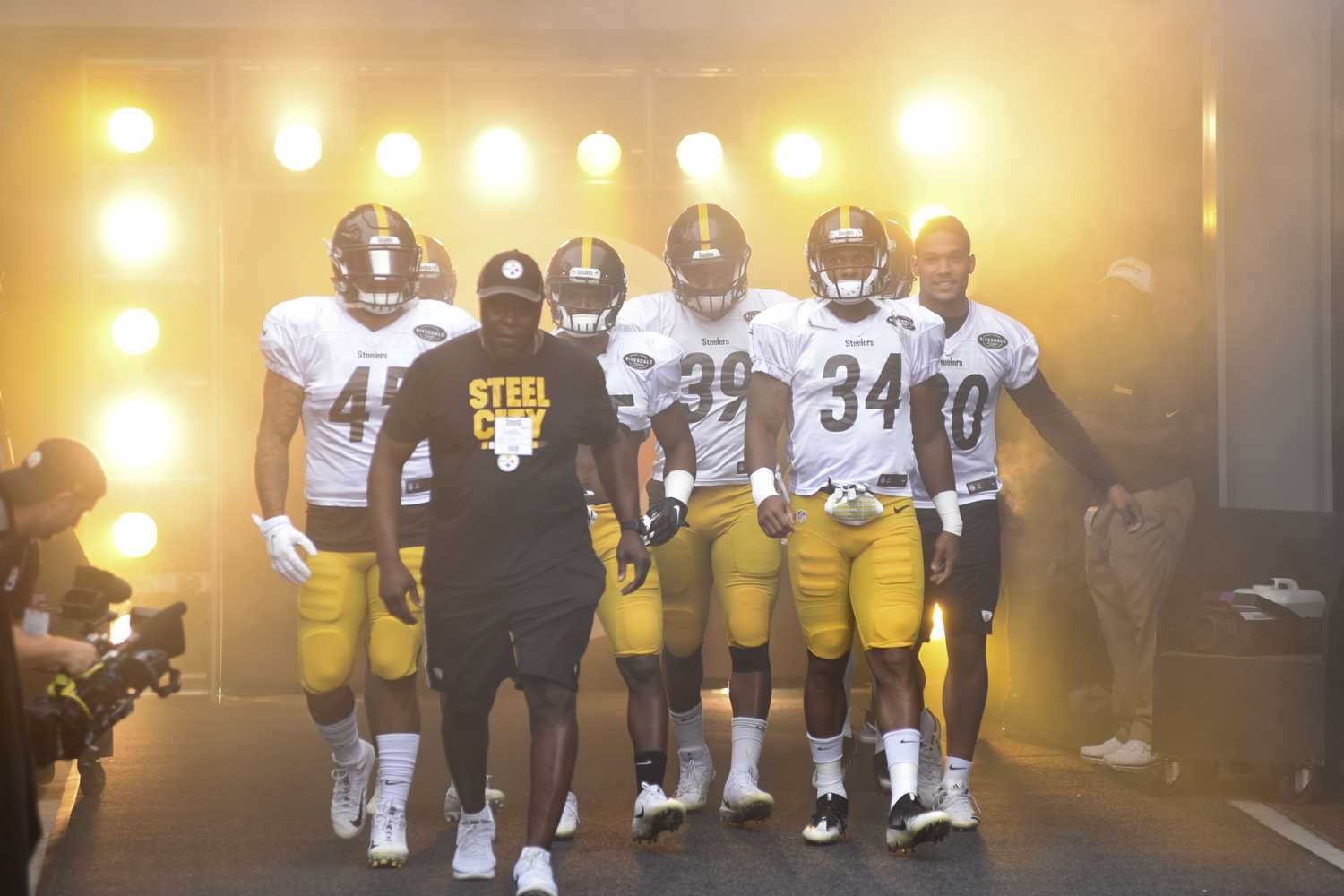Editorial: Critics of anthem protests aren’t patriotic


Steelers players walk onto the field during a practice in August. (Photo by Matt Hawley | Staff Photographer)
When the Steelers walked onto the field before yesterday’s game against the Chicago Bears, the booing they received wasn’t just because they were the away team.
Shortly before the game began, Steelers head coach Mike Tomlin told Jamie Erdahl of CBS Sports that Pittsburgh’s NFL team would remain in its locker room at Soldier Field for the duration of the national anthem prior to the game. And while Tomlin said the decision was initially intended to be explicitly non-political, different interpretations took hold in an atmosphere of recent heightened tensions.
“If a guy wants to go about his normal business and participate in the anthem, he shouldn’t be forced to choose sides,” Tomlin said. “If a guy feels the need to do something, he shouldn’t be separated from his teammate who chooses not to.”
But in the light of multiple antagonistic remarks this weekend from President Trump toward professional athletes symbolically protesting by kneeling during the national anthem, some individuals and media outlets took offense to what they saw as the Steelers’ protest. Among the most common condemnations of the move was that it disrespected the sacrifices of American soldiers who have died protecting civil rights and liberties in the United States.
While criticisms of professional football players’ right to voice their political opinions in public are already dubious regardless of how they’re justified, the claim that it disrespects the sacrifices of American troops is simply absurd. What’s more, the tradition of playing the national anthem and standing is one that is far from historically set in stone.
The argument that refusing to stand during the national anthem prior to a sporting event is anti-veteran relies strongly on a false belief — that doing so materially affects veterans in any way. The national flag and the national anthem are symbols, and protests against either are symbolic. And because there’s no tangible connection between anthem protests and the welfare of our troops, arguments against players exercising their First Amendment rights are based almost exclusively on appeals to emotion, not logic.
Never mind that American soldiers died for the preservation of precisely the same liberties that opponents of player protests want stripped away — the traditions of ostentatious patriotism at football games do nothing to protect troops’ lives.
According to one 2015 estimate from the offices of Republican Sens. Jeff Flake and John McCain of Arizona, the Department of Defense spent $10.4 million on marketing contracts with teams in the nation’s various professional sports leagues. That money, which went to pay for displays of patriotism, could have been spent on technology to save soldiers’ lives.
Standing for the national anthem at sporting events — a relatively new American tradition — does nothing to protect our rights and liberties. Far from improving the lot of American soldiers and American citizens, those who oppose players’ rights to protest are clearly harming the liberties the flag symbolizes.
Recent Posts
SGB addresses concerns about ICE presence on campus, hears SJP lawsuit against administration, approves governing code bill
At its weekly meeting on Tuesday at Nordy’s Place, Student Government Board heard concerns about…
ACLU of Pennsylvania sues Pitt over SJP suspension
The ACLU of Pennsylvania filed a federal civil lawsuit against the University of Pittsburgh and…
Marquan Pope: The ultimate shark
One of the most remarkable things about sharks is that an injury doesn’t deter them.…
Who Asked? // Do we really get a summer vacation?
This installment of Who Asked? by staff writer Brynn Murawski mourns the seemingly impossible perfect…
Notes From an Average Girl // Notes from my junior year
In this edition of Notes From an Average Girl, senior staff writer Madeline Milchman reflects…
Meaning at the Movies // The Power of the Movie Theater
In this edition of “Meaning at the Movies,” staff writer Lauren Deaton discusses her love…

